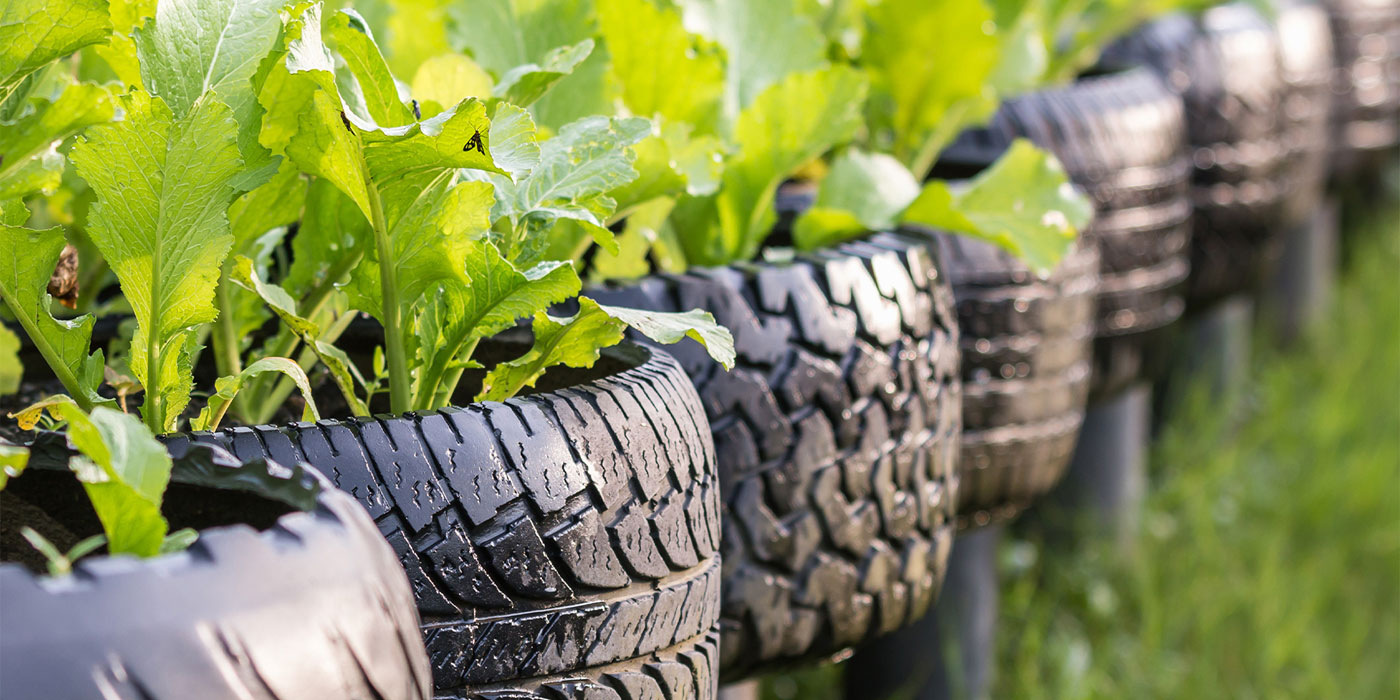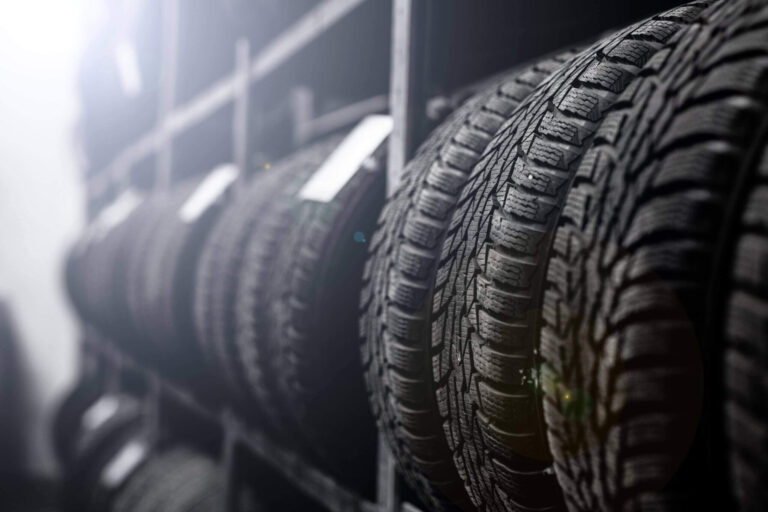In recent years, tire technology has made great strides in reducing the environmental impact of automobiles. Advances in eco-friendly tire design have allowed for more sustainable tires that not only reduce noise pollution but also minimize fuel consumption and carbon emissions.
Moreover, new technologies have been developed to increase the lifespan of tires and reduce their reliance on raw materials. This article will explore some of these advances in detail and discuss how they can be used to create a greener future on our roads.
Increasing Fuel Efficiency with Improved Tire Design
Vehicle fuel efficiency is an important factor in reducing environmental impact on the road. Tires are a major contributor to this, as they account for up to 20% of a car’s fuel consumption. Improving tire design can significantly increase vehicle fuel efficiency and reduce emissions.
Advances in tire technology have made it possible to create tires that offer improved performance while consuming less energy and resulting in lower emissions. This includes designs such as low-rolling resistance tires, which use special materials and tread patterns to reduce friction between the wheel and the ground, thus decreasing energy loss during rotation.
Additionally, new rubber compounds help optimize air retention within the tire structure for a better cushioning effect with minimal energy loss when driving. The incorporation of these advancements into modern automotive design has enabled drivers to achieve greater mileage without sacrificing safety or performance on their vehicles.
By leveraging these technologies, motorists can save money by using less gasoline over time while still enjoying smooth rides with good cornering grip and stability at high speeds—all while helping protect our planet from further pollution caused by cars on the roads today!
Harnessing Renewable Resources for Tire Manufacturing

The development of eco-friendly tire technology has been an ongoing process, and harnessing renewable resources for tire manufacturing is a key part of the journey. Tire manufacturers are now looking to use more sustainable materials such as hemp, sugarcane, and recycled rubber in order to reduce their environmental footprint.
By relying on these renewable resources instead of depleting finite sources like oil and gas, they can create tires that last longer while also reducing emissions. This shift towards using natural materials offers numerous benefits; not only does it help preserve nature but it also reduces energy costs associated with traditional production methods.
Additionally, utilizing renewables helps minimize waste since any excess material can be reused or repurposed instead of ending up in landfills or oceans. All this adds up to a more sustainable future for both our planet and the industry itself!
Reducing Carbon Emissions Through Reduced Rolling Resistance
The introduction of advanced tire technology has allowed for significant advances in reducing vehicle emissions and their impact on the environment. One major advancement is the reduction of rolling resistance, a measure that directly affects fuel efficiency and carbon emissions.
By reducing the amount of energy required to move tires down the road, these technologies can result in fewer gas emissions over time. Many car manufacturers are turning to specialized low-rolling-resistance (LRR) tires as an important part of their eco-friendly strategies. These tires feature a unique tread design with less flexible sidewalls and harder rubber compounds that minimize abrasion on surfaces while providing superior handling characteristics.
The resulting lower friction between tire and pavement reduces environmental impacts by decreasing fuel consumption during normal driving conditions, which directly translates into fewer carbon emissions released into our atmosphere. In addition to using LRR tires, other methods have been developed to reduce rolling resistance such as improved air pressure management systems or wheel alignment services that reduce strain on suspension components while driving – all leading to further reductions in CO2 output from vehicles on our roads today.
For drivers looking for even more ways to help protect our planet from excessive pollution caused by automobile use there are also additional options available such as switching out conventional motor oil for synthetic oils designed specifically for reduced rolling resistance or modifying existing engines with performance chipsets that optimize fuel combustion ratios for greater efficiency and cleaner exhausts . No matter what route you take when it comes to eco-friendly advancements in automotive technology, these solutions offer tangible results when it comes to curbing negative environmental impacts due largely in part thanks to reduced rolling resistance innovations making them an ideal choice those seeking greener transportation alternatives now more than ever before!
Recycling Used Tires into New Products

Recycling used tires into new products is one of the most eco-friendly advances in tire technology. This process reduces the environmental impact of road transportation, as it allows for the reuse of old tires and their material components.
By using recycled rubber from old tires, manufacturers are able to produce a variety of items that can be found on our roads today. For example, rubberized asphalt is often produced with these materials which creates a softer surface for drivers while providing exceptional traction when wet or icy.
Additionally, some communities have begun projects to turn used tires into playground materials such as mulch or even paving stones and other outdoor surfaces. Not only do these efforts reduce pollution caused by discarded tires but they also create beautiful spaces where families can gather and interact safely outdoors.
Recycled tire products provide an excellent way to support sustainable practices while enjoying the convenience of modern road travel without compromising environmental health.
Utilizing Sustainable Materials in Tire Construction
The use of sustainable materials in tire construction is an integral part of the eco-friendly advances in tire technology. By utilizing renewable and environmentally friendly components, manufacturers are able to reduce their carbon footprint while still producing reliable tires for cars, trucks, and other vehicles.
For instance, using rubber derived from plants such as dandelion or guayule has become increasingly popular among companies due to its sustainability. This type of rubber requires fewer energy resources during production and also produces less waste than traditional rubber sources.
Additionally, synthetic fibers such as nylon or polyester can be used to create strong yet lightweight materials that contribute significantly to overall fuel efficiency – reducing environmental impact on the road. Furthermore, innovations like 3D printing have enabled designers to quickly prototype and test new designs without having to resort to heavy manufacturing processes which require more energy resources. As eco-friendly advances continue to progress, the utilization of sustainable materials in tire construction will remain a key factor in reducing environmental impacts on our roads.
Conclusion

Overall, Eco-Friendly advances in Tire Technology have greatly reduced the environmental impact of automobiles on the road. By introducing innovations such as using natural rubber and recycled materials, the industry has made a significant step towards reducing emissions and pollution.
Tema Accra Tire Shop is an excellent example of how these eco-friendly technologies can be implemented to create a more sustainable future for our environment. With continued research and development into tire technology, we can expect to see further improvements in this area that will help protect our planet from further damage caused by motor vehicles.

